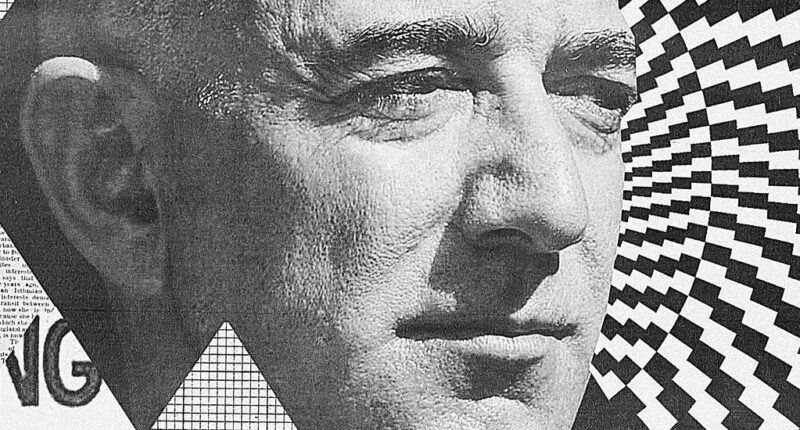
During his tenure as executive editor at The Washington Post, Martin Baron ran into a persistent problem.
Jeff Bezos had purchased The Post for $250 million in 2013, less than a year after Mr. Baron had taken over. Mr. Bezos, who arrived at media ownership after founding Amazon and remaking online shopping, wanted his top editor to transform the newspaper from a regional news organization into a truly global one.
But Mr. Bezos, whose representatives kept an eye on the budget, didn’t believe The Post needed to add many new editors to accomplish that task. Reporters were classified as “direct” employees and editors as “indirect” — and his preference was to keep the “indirect” numbers down.
So, Mr. Baron came up with a workaround, according to his coming memoir.
“To avoid setting off alarms up the line, my deputies and I would strip the word ‘editor’ from proposed new positions whenever possible,” Mr. Baron writes. “‘Analyst’ or ‘strategist’ were among the limited set of workarounds.”
These days, Mr. Bezos knows more about the news business. And in recent months, he has become more involved with The Post’s operations, stepping in as staff morale cratered and the business struggled.
Mr. Bezos has said he wants The Post to be profitable, but it is unlikely to reach that target this year.
The Post is on a pace to lose about $100 million in 2023, according to two people with knowledge of the company’s finances; two other people briefed on the situation said the company was expecting to miss its forecasts for ad revenue this year. They spoke on the condition of anonymity to discuss internal financial matters. The Post has struggled to increase the number of its paying customers since the 2020 election, when its digital subscriptions peaked at three million. It now has around 2.5 million.
A spokesperson for Mr. Bezos declined to make him available for an interview. Patty Stonesifer, The Post’s interim chief executive, said Mr. Bezos was happy with “every dollar invested” in the company. One person familiar with Mr. Bezos’ plans said The Post had planned for 2023 to be a “year for investment.”
“I’m very enthusiastic about what we can do here at The Washington Post in the decade ahead,” Ms. Stonesifer said in a statement. “Jeff’s second decade of ownership of The Post should be even more exciting.”
Mr. Bezos’ purchase of The Washington Post ended decades of ownership by the Graham family — which had steered the paper through its legendary coverage of Watergate and the Pentagon Papers — and signified a new era of expansion under one of the world’s most famous entrepreneurs. In a meeting with staff shortly after his purchase, Mr. Bezos encouraged Post employees to experiment digitally, taking advantage of the “gifts of the internet,” such as global reach, that had made Amazon a stunning success. He provided ample financial support to expand the newsroom.
Mr. Bezos weighed in on product decisions and hired Fred Ryan, former chief executive of Politico, to serve as publisher to replace Katharine Weymouth, a scion of the Graham family. He kept Mr. Baron in place as The Post’s top editor until his retirement in 2021, frequently referring to him as the best journalism tutor an owner could ask for. He helped choose Sally Buzbee as the successor to Mr. Baron, inviting her to his home in Washington’s upscale Kalorama neighborhood.
But after an initial surge of interest that lasted several years, and following his decision to step down as Amazon’s chief executive, Mr. Bezos receded somewhat at The Post, according to two people familiar with his interactions with the newsroom.
That changed in January, after Ms. Buzbee spoke with Mr. Bezos and conveyed an urgent message: Morale was low at The Post. Much of it, she said, stemmed from missteps by the newspaper’s chief business executive, Mr. Ryan, according to two people familiar with her remarks.
Ms. Buzbee’s relationship with Mr. Ryan had been fraught. He had accused Cameron Barr, her top deputy, of leaking information about The Post’s operations to the press, according to three people familiar with his comments, and had sought his ouster. Through a spokesperson, Mr. Ryan denied accusing Mr. Barr of leaking information and trying to get rid of him. The Post declined to comment on the situation. Two people familiar with the matter said there was no evidence to support the leaking claims.
Many at The Post had become frustrated with what they viewed as a stultified business culture over which Mr. Ryan presided, and had relayed these concerns to Ms. Buzbee.
The Post was also bleeding talent. In the past year, several prominent reporters, including the Pulitzer Prize winners Eli Saslow, Robert Samuels and Stephanie McCrummen, left, along with top editors including Mr. Barr; Steven Ginsberg, a longtime editor; David Malitz, senior culture editor; and Sharif Durhams, deputy managing editor.
There was a similar exodus among top Post executives, including Shailesh Prakash, chief information officer; Joy Robins, chief revenue officer; Kat Downs Mulder, chief product officer; and Kristine Coratti Kelly, chief communications officer. (Ms. Robins, Mr. Saslow, Mr. Malitz and Mr. Ginsberg have joined The New York Times Company.)
In January, Mr. Bezos made a rare appearance in the newsroom. He sat in on a morning news meeting, and later in the day he met with a handful of Post journalists. During some of his gatherings, several Post employees expressed concerns about Mr. Ryan’s missteps and the direction of the paper.
In June, Mr. Ryan announced his resignation, telling employees that he planned to start the Center on Public Civility, a new project by the Ronald Reagan Presidential Foundation, where he is chairman of the board. Mr. Bezos agreed to provide funding for the center.
In an interview with The Times last month, Mr. Ryan said he’d had “a lot of conversations” with Mr. Bezos about the new organization.
Mr. Bezos appointed Ms. Stonesifer, a friend who has served on the board of Amazon for more than two decades, to run The Post in Mr. Ryan’s absence and to serve as an interim chief executive while the search for a permanent one was underway.
Ms. Stonesifer — who is not taking a salary for the job — has already begun to put her stamp on The Post. She is meeting frequently with staff members, asking for feedback on what she calls “flowers,” things that people are proud of and want to continue growing, and “weeds,” issues that people want dealt with.
On July 11, she and Mr. Ryan hired Alex MacCallum, a veteran of The Times and CNN, to be The Post’s chief revenue officer, and named Vineet Khosla as the newspaper’s chief technology officer. Ms. Stonesifer has also repeatedly told staff members that Mr. Bezos is fully committed to the business and sees the newspaper as a legacy for his family.
Mr. Bezos has personally weighed in on an experimental project being developed for The Post’s opinion section, which is being run by David Shipley, a former Bloomberg editor he helped recruit. The initiative — which doesn’t yet have an official name — is exploring a forum for readers in cities across the United States to submit their own opinions and commentary.
Mr. Bezos has told confidants that the new endeavor, which is being developed with help from the former New York magazine editor Adam Moss, is an opportunity to reach readers who may have tuned out the news, according to four people familiar with its development. Mr. Bezos has been having regular meetings with Mr. Shipley to discuss the project.
Other changes that are planned at The Post include a rebooting of the 54-year-old Style section in September. According to three people with knowledge of the plan, the overhaul will include an online redesign.
Mr. Ryan’s exit is seen among employees as a victory for Ms. Buzbee, whose relations with The Post’s newsroom have occasionally been strained since she joined from The Associated Press two years ago. The Post has continued to deliver high-quality journalism and in May won two Pulitzer Prizes for its reporting, while a book written by two Post reporters was awarded the general nonfiction prize.
Ms. Buzbee is now meeting regularly with Ms. Stonesifer and seems to be energized by that collaboration, according to people in the newsroom, who are also heartened by Ms. Stonesifer’s close ties to Mr. Bezos.
“There’s a sense of hope, which we haven’t had for a long time,” said Sally Quinn, a longtime Post journalist and the widow of Ben Bradlee, a former top editor of The Post.
Source: | This article originally belongs to Nytimes.com








